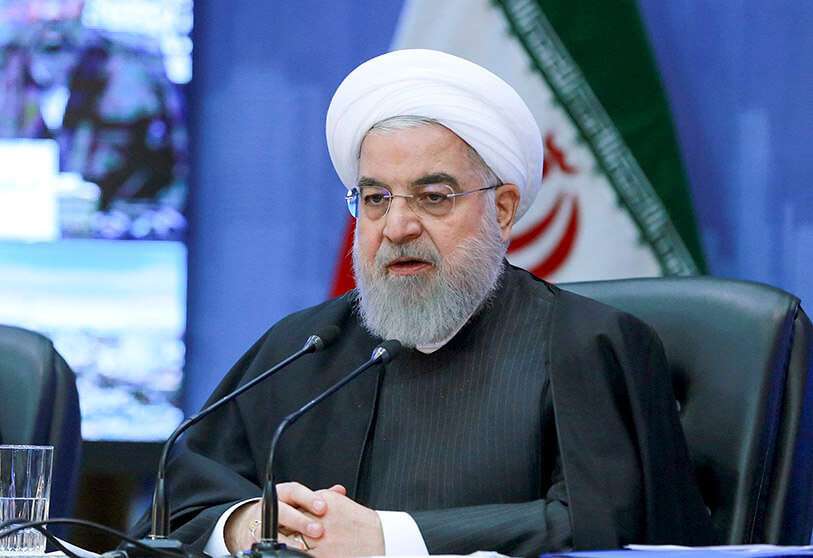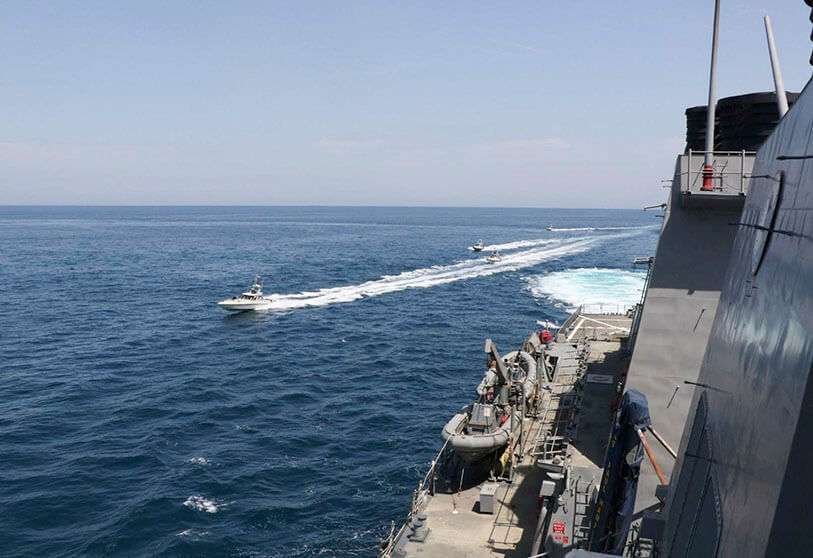Donald Trump orders U.S. Navy to destroy armed Iranian ships harassing U.S. vessels

The president of the United States, Donald Trump, threatened the Islamic Republic of Iran to stop Iranian armed vessels from harassing American ships in Gulf waters. From his Twitter social network account, the top Republican leader instructed the Navy to eliminate Iranian warships that harass any element of the U.S. fleet. In response to this warning, the ayatollahs' regime 'advised' Trump to be more concerned about his soldiers in the face of the severe impact of the coronavirus pandemic on his country rather than focus on the Persian nation.
“I have instructed the United States Navy to shoot down and destroy any and all Iranian gunboats if they harass our ships at sea,” the president said.
This direct threat from Donald Trump is yet another episode in the escalation of tension that has been commonplace between the US and Iran in the context of the confrontation that has been going on for many years. The new peak of this festering situation occurred in 2018, when the Trump Administration abandoned the nuclear deal signed with the Iranian state along with France, the United Kingdom, Germany, China, Russia and the European Union in 2015 (JCPOA), which put an end to the Iranian nuclear program, especially in relation to weapons; to then impose economic and political sanctions on Tehran, including primarily those related to the oil trade, the main source of Iranian funding.
Iran's President Hassan Rohani responded strongly at the time by threatening to continue trading in his oil and to block the Straits of Hormuz, the main transit area for the world's oil trade.

Warnings were followed by incidents involving cargo ships in Gulf waters and attacks against oil and airport interests in Saudi Arabia (Iran's great rival in the Middle East and the main symbol of the Sunni branch of Islam, as opposed to the Shiite represented by the Iranians in a struggle for regional dominance).
Both the international community in general and almost the entire Arab community (with exceptions such as Qatar) in particular pointed to the theocratic regime and pro-Iranian actors for being responsible for these offensives. Something denied by the Persian authorities, in spite of the fact that it is known the interference of Iran in the internal affairs of neighboring nations through the Quds Forces, international division of the Islamic Revolutionary Guard (elite body of the Iranian Army); with the collaboration of Shiite groups affected by Iran deployed in nations like Iraq (People's Mobilization Forces), Lebanon (Hamas), Yemen (Hutu militias) or Syria (armed group Liwa Fatemiyoun).
In the end, Iran reduced part of its atomic commitments after the punishments received, and the rest of the signatory countries of the JCPOA urged to save the nuclear agreement in spite of the departure of the United States. In fact, the INSTEX mechanism was enabled to provide medical supplies to Iran in the fight against the coronavirus pandemic, through operations that avoided transactions in dollars, thus avoiding the violation of economic sanctions decreed by the American giant.
After the first incidents with oil tankers in the waters of the Persian Gulf, last November the United States established a maritime alliance to guarantee naval security in the region, with partner countries such as Saudi Arabia and the United Arab Emirates.
Meanwhile, a week ago, the U.S. accused Tehran of "dangerous naval manoeuvres" when 11 Iranian boats surrounded U.S. ships in international Gulf waters at "high speed" and from "very close range". The U.S. boats gave several radio announcements and sounded acoustic signals until the Iranian ships left after an hour of harassment. For its part, Iran has already urged the U.S. Navy to leave the regional waters, as reported by Mohammad Javad Zarif, the foreign minister of Iran.

On the other hand, it is also worth mentioning that the Islamic Republic of Iran had successfully launched its first military satellite this Wednesday after several failed attempts, which was pointed out by the US as another "provocation" by the regime of the ayatollahs, which might conceal hidden interests behind the launching of this rocket into orbit for ballistic missile developments. Though, Iran stated its space-program has only "peaceful purposes" and is fully transparent and in line with international standards.
In response to Donald Trump's final wake-up call, the Islamic Republic of Iran said the United States should focus more on saving its military from the coronavirus rather than trying to threaten other countries, Brigadier General Abolfazl Shekarchi told the semi-official ISNA news agency.
"Today, instead of intimidating others, the Americans would do better to save their troops infected by the coronavirus," Shekarchi said. He also noted that US should "withdraw their troops (from the Middle East) in order to save the people from this major crisis hitting their country. "Today, the United States has become the nation most affected by COVID-19, and U.S. officials must think about solving this problem," he said.








